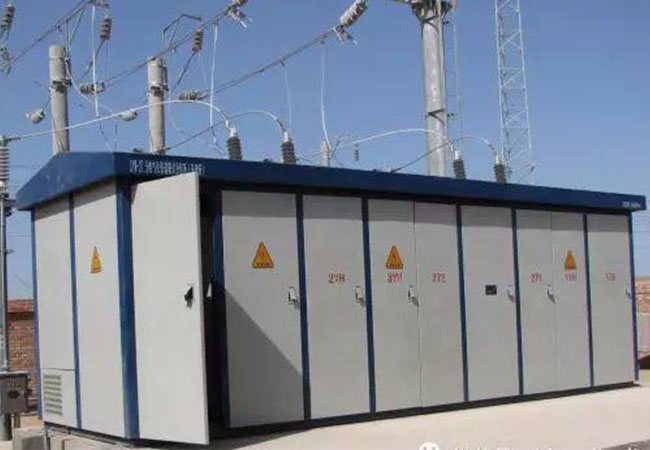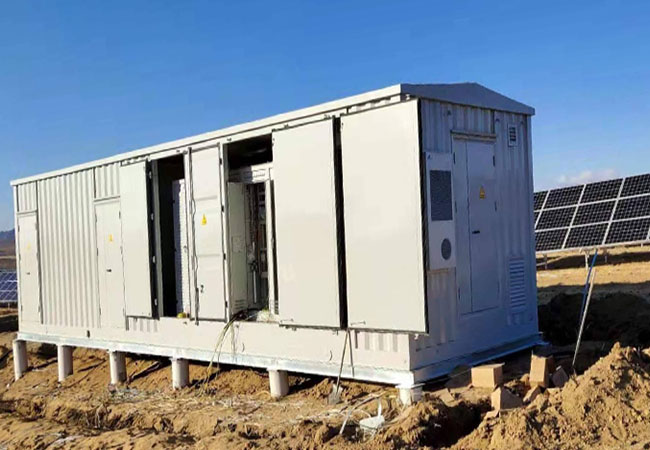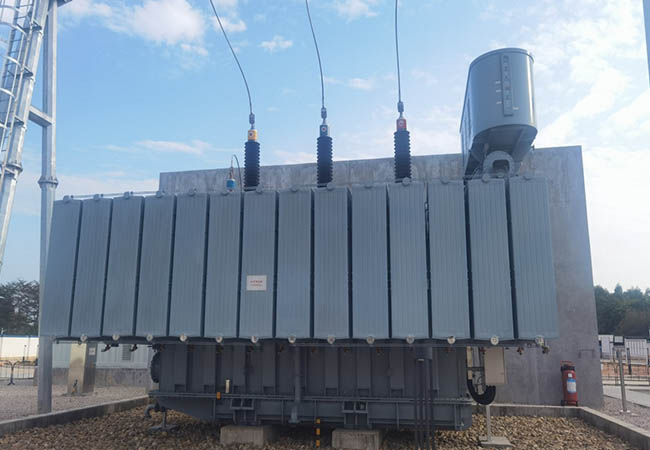Energy Storage Booster Station Substation
05-08 2025 | By:
Energy Storage Booster Station: Also termed Energy Boosting Substation or Storage-Integrated Boost Station, it enhances power quality by stabilizing voltage and frequency.
Box-Type Substation: Synonymous with Containerized Substation or Modular Transformer Station, characterized by prefabricated steel enclosures for rapid deployment
ZGS Series: Denotes a family of integrated substations (e.g., ZGS-1250, ZGS-2000) combining transformers, converters, and battery storage
Energy Storage Step-up Substation: A subtype featuring DC/AC converters and step-up transformers to elevate voltage for grid transmission

Energy Storage Step-up Substation integrated with Converter
1. Core Components & Technical Specifications
Component Function Common Specifications
Energy Storage Unit Stores excess energy via lithium-ion or flow batteries Capacity: 500kWh–5MWh; Round-trip efficiency: 85–92%
Converter System Converts DC to AC and vice versa Power rating: 500kVA–2MVA; Efficiency: 96–98%
Transformer Adjusts voltage levels Voltage range: 10kV–35kV; Regulation: ±2%
Control System Manages energy flow and grid interaction Features SCADA integration and AI-based load forecasting
2. Application Scenarios
Renewable Energy Integration: Stabilizes solar/wind output fluctuations in microgrids
Industrial Backup Power: Ensures uninterrupted supply for factories during grid failures
Urban Grid Reinforcement: Reduces peak demand in high-density areas
Telecommunication Infrastructure: Powers remote cell towers with hybrid solar-storage systems

Energy storage booster station substation
Core Components & Technical Specifications
| Component | Function | Common Specifications |
|---|---|---|
| Energy Storage Unit | Stores excess energy via lithium-ion or flow batteries | Capacity: 500kWh–5MWh; Round-trip efficiency: 85–92% |
| Converter System | Converts DC to AC and vice versa | Power rating: 500kVA–2MVA; Efficiency: 96–98% |
| Transformer | Adjusts voltage levels | Voltage range: 10kV–35kV; Regulation: ±2% |
| Control System | Manages energy flow and grid interaction | Features SCADA integration and AI-based load forecasting |
4. Application Scenarios
3. Market-Leading Models
ZGS-1500KVA:
Features: 1.5MVA converter, 10kV transformer, 1MWh battery bank
Use Case: Medium-scale industrial parks
Energy Storage Step-up Substation V3.0:
Highlights: 35kV output, 2MW power rating, 95% efficiency
Application: Utility-scale wind farm integration
4. Future Trends
AI-Driven Optimization: Predictive maintenance and real-time energy dispatch
Hybrid Storage Systems: Combining batteries with supercapacitors for faster response times
Carbon Neutrality Alignment: Integration with carbon capture technologies for net-zero grids
7. Conclusion
The convergence of energy storage and substation technology represents a paradigm shift in power distribution. As seen in the ZGS series and similar systems, modular designs are enabling scalable, resilient energy solutions for a decarbonized future.
You may also find these interesting:


